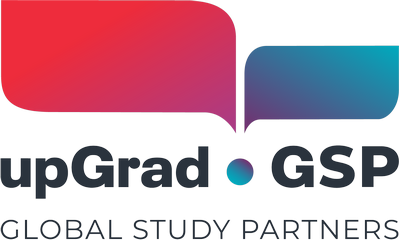Getting into university is one thing; immersing oneself in the environment is another. Becoming a tertiary education student is more than just passing a set of requirements or pursuing a degree. It also means being part of the system—and that requires an understanding of common uni terminology used in everyday situations.
To help prepare students for higher education, it’s important to enrich their knowledge of university jargon that they should know going in. Here’s a list of relevant uni terminology that you can teach them so that they can transition into uni life more easily!
Australian Tertiary Admissions Rank (ATAR)
The ATAR is a number between 10.00 and 99.95 that indicates a student’s ranking among all other learners in their age group in Australia. It’s one of the most important criteria for undergraduate admission to a university.
Adjustment factors
Adjustment factors are used in combination with ATAR to increase the selection rank of a student, improving their chances for admission to a chosen degree program.
Common adjustment factors include:
- outstanding performance in related subjects
- financial hardship
- disability or illness
- family disruption (e.g., death of a family member).
Bridging course
A bridging course, also known as an enabling course, is a pathway option that’s designed to help students meet admission requirements for an undergraduate.
College
In Australia, the term college refers to a tertiary education provider that’s smaller than a university and is either run independently or as part of a university. It may also sometimes refer to a residential college, which is student accommodation on or near campus. In Canberra, it may also be the term used to call the school where students complete Years 11 and 12.
Course
A course is a subject that’s taken as part of completing a degree (which is made up of multiple courses). At the start of each semester, students enroll in their desired courses.
Credit
A credit is a type of grade given upon completion of assignments, units, or modules in a course. It’s typically awarded for marks between 60 to 69 to indicate good performance.
Defer
To defer is to delay the start of a course while still maintaining your placement in a university degree program. Students who defer usually do so to save money, travel or take a gap year.
Degree
A degree is a credential given to students who finish all of their university program requirements. An undergraduate degree (also called a bachelor’s degree) is for high school graduates and usually takes three to four years to finish. A postgraduate degree, which can be a Masters, PhD or Doctoral program, is taken by students who have completed their undergraduate degree, which can take between two to four years to complete.
Diploma
A diploma is a qualification awarded to students who complete a diploma course—a one- to two-year program that teaches a student specialised knowledge and skills on a certain subject.
The term may also refer to the certificate a student receives to prove the completion of a university degree.
Double degree
A double degree is a way for students to pursue two degree programs simultaneously. Some people take it as an opportunity to study a passion alongside a practical course or to finish two related degrees to advance their career prospects in their desired industry.
Electives
Electives are units, subjects, or modules that students voluntarily choose to study on top of compulsory courses. These are often supplemental topics that one can use to augment their knowledge of a field or a subject a student is simply interested in.
Gap year
A gap year is a break a student may take off to travel, work, or prepare for their university education. In many cases, students defer commencement to a higher education program to take their gap year.
Major
A major is the main sequence of units in a learner’s chosen area of study. It forms the bulk of their degree and builds a foundation in their area of expertise. This may also be called a “specialisation.”
Minor
A minor is a short collection of related courses in a specialised area of study. It has half the units of a major and is less in-depth.
Pathways
Pathways are alternative academic methods for gaining entry into a university degree program. These include taking bridging courses, obtaining a certificate or a diploma and pursuing vocational study, among others.
Pathways are available to high school students who don’t quite meet the prerequisites of a university (like not getting a high enough ATAR) but possess the potential to do so.
Selection rank
A student’s selection rank is an assessment that considers their ATAR, previous university study, Special Tertiary Admissions Test (STAT) result or enabling program entry, among other factors to determine admission score. The higher the selection rank, the more likely a student is to receive an offer from a university.
Semester
Generally, a semester comprises 12 weeks of study with a two-week mid-semester break in the middle. An academic year is usually divided into two semesters, with the first from February to June and the second from July to November.
Special Tertiary Admissions Test (STAT)
The STAT is a nationally recognised test that assesses competencies necessary for successful tertiary study. Students may use it as an avenue of entry for those who don’t have formal entry requirements (e.g., students who didn’t finish high school) or as a supplementary criterion for admission into university.
Technical and Further Education (TAFE)
TAFE is a government-run system in Australia that provides various levels of certificates and diplomas in vocational areas like design, business, IT, etc. It’s taught in TAFE institutions across the country and is usually offered to high school graduates.
Students in TAFE receive practical education, allowing them to develop specific skills for the workplace.
Transcript
A transcript is an academic record that shows the marks of a student in all courses after completion of a university degree. Graduating students are given a free copy, and any other requests can be made through an institution’s records office or student centre (and may entail a fee).
Vocational Education and Training (VET)
VET is a type of education and training opportunity that aims to help students gain industry-ready skills in a range of specialised subjects. It covers a wide range of industries and paves a quicker way for the workforce. Australia’s TAFE institutes are the largest providers of VET.
Getting ready for uni with Global Study Partners
Preparing for university goes beyond just focusing on academics. It involves immersing oneself in the culture of uni students—which means speaking the language with uni terminology! With Global Student Partners, you can help students get ready for higher education. Reach out to our business development experts to learn more.




